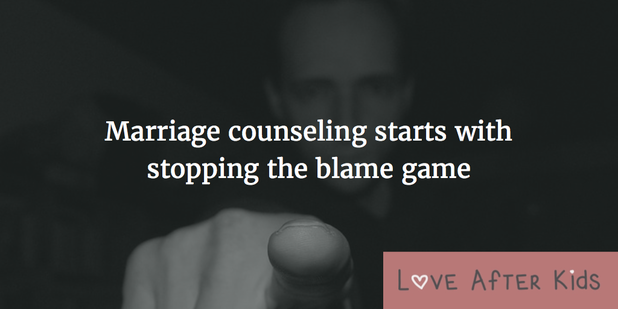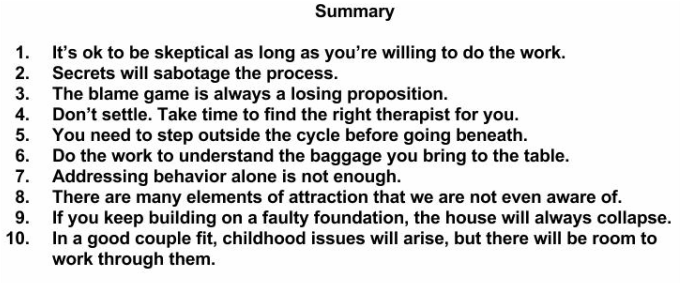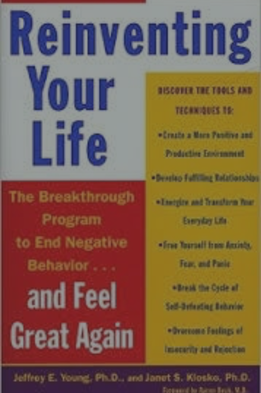After meeting with a couple for an initial session, I usually meet with each person for an individual session to better understand where they stand in terms of the relationship and if they have any big secrets that could sabotage our work if they aren’t revealed.
Another thing I always tell people is that I don’t want to waste their time or my time. If they are both wanting to work on their relationship with honest intention, that is all that I need to get started. Sometimes it’s not so clear. Maybe one member says they are willing, but have checked out and are going through the motions. Maybe one member is having an affair and is still keeping it a secret.
Identifying and stepping outside this negative cycle is critical if marriage counseling is going to work. When couples give up quickly, it is usually because they are so discouraged by their lack of progress due to being stuck in the blame game.
The fit and chemistry between the couple and the therapist is another important factor. It takes time to forge a relationship and build trust. It’s not uncommon for one member of the couple to feel aligned with the therapist and for the other to feel that the therapist is playing favorites. It’s important that both members of the couple feel heard, seen, validated, understood and not judged.
You have to get to the feelings and experiences that underlie the presenting behavior in order for real change and healing to happen. That is why it is critical to first get a handle on the cycle or patterns that exist. That creates the space to then move beneath to get to the heart of the matter.
If you keep building houses on a faulty foundation, the house will eventually collapse. If you only look at the building materials for the cause every time it falls, you might find contributing factors, but if you ignore the foundation, you’ll never have a house that lasts.
Think of the behavior as the building materials. If you only address the behavior and make changes to the behavior, you can definitely make changes to the relationship, but those changes won’t last if the foundation is not addressed.
The foundation involves each individual doing their own work on themselves to understand the relationship baggage each is bringing to the table. This starts with formative relationships with primary caregivers, as well as other primary relationships with family, friends and other influential people in their lives.
All of the aforementioned relationships create the foundation for the unconscious fit between partners. The unconscious fit can be understood as all the factors that contributed to the attraction that were simply outside of awareness.
For example, sometimes we choose people that are exactly like one of our parents. Other times we choose people that are totally different. We often unconsciously choose partners that will allow us to work through issues from childhood. In a good fit, similar childhood issues will arise, but there will be room to understand and work through the issues.
In any trade or profession, there will inevitably be a wide range of proficiencies. The therapy field is no different. There will be a lot of mediocre to lackluster therapists out there. It’s important to do your homework. What are their credentials? Were they recommended? Are they clear about the process and answering your questions?
It takes a tremendous amount of courage to go and see a marriage counsellor. It’s almost unfair to expect that on top of that, in such a vulnerable position, that you have to have the presence of mind to assess the fit, but you really should. Interview a number of people if you need to, but this is not the time to just settle. Trust your gut. It’ll tell you more than the number of diplomas on the wall.
| I highly recommend getting the book “Reinventing Your Life” by Jeffrey Young, Ph.D & Janet Klosko, Ph.D. Read part 1, the first five chapters. This will help you to focus on which life-traps are most relevant for you. Then read the chapters on your life-traps and do the corresponding exercises. This is a great way to get a better understanding of your baggage and how it may be impacting the dynamic with your partner. |
| Another great book is “Hold Me Tight” by Sue Johnson, Ph.D. Sue Johnson is the founder of Emotion Focused Therapy. She takes you through the process of reconnecting and healing in stages with exercises. It’s available as an audiobook as well, which is a great option if you and your partner want to listen together. |






 RSS Feed
RSS Feed